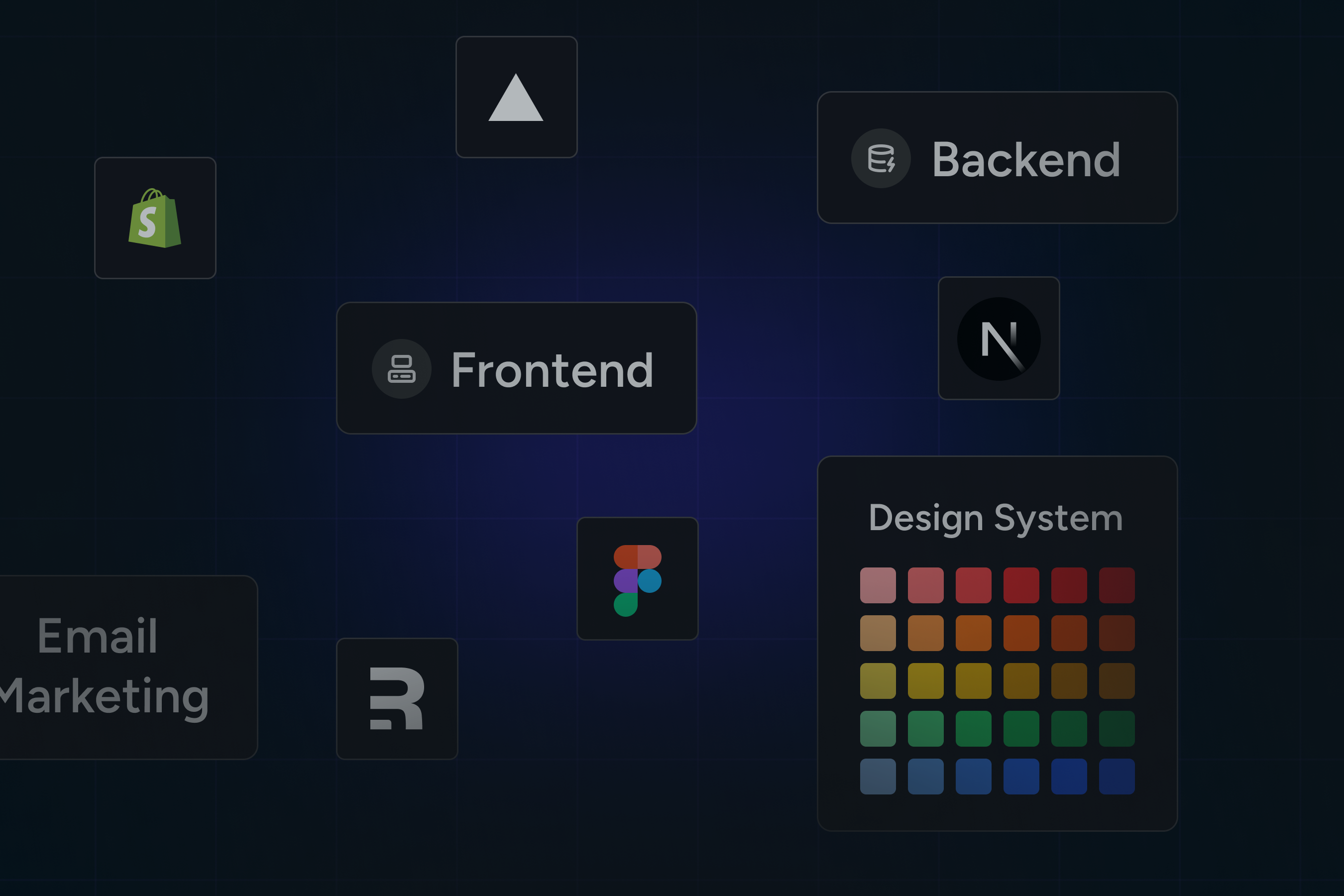Web Development
Why choose a custom-built website over a platform like Wix or Wordpress?
Some things to consider when choosing between a custom build or a site-building platform for your business website.

Peter White
4 min read
•May 2, 2024

At Good Alchemy, instead of making websites using site building platforms like Wix, Webflow, and Wordpress, we custom build websites using the most advanced and modern frontend technologies available. More specifically, we build our sites using top React frameworks like NextJS and RemixJS.
We also combine the sites we build with modern Content Management Systems (CMS) like Sanity and Strapi, so that site owners and marketers can seamlessly add and update their site’s content post-launch without the need of a developer.
As an example, the site you're on right now is built with RemixJS and Sanity. 🤯
The benefits of a custom build
Coding the sites ourselves allows us to build sites specific to the custom branding, designs, and needs of the business, and ensures that the site has blazing-fast page load speed, a perfect SEO implementation, and is 100% mobile-responsive.
Custom coding also future-proofs websites by ensuring that any additional functionalities or features you might want to add to the site down the road can be added seamlessly, and in a way that matches the designs and branding of the business.
The limitations of templates and site builders
While site builders like Wordpress and Squarespace are a sensible and affordable option for people with a limited budget looking to throw up a landing page, the reality is that the themes and templates these site building platforms offer usually make for sites that:
- look and feel clunky
- don’t adjust well to varying copy and images
- have slow page load speeds
- aren’t as mobile-responsive as advertised
- force you into cookie cutter designs that are difficult to customize
- end up looking like many other sites, making it harder for your brand to stand out from the pack
The many downsides of a plugin-based architecture
Another substantial downside of these platforms is that they require you to download plugins in order to power all of your site’s functionalities like SEO, search, forms, email capture, and other common widgets. Not only do these plugins often make you pay a subscription to download and use them, they also:
- add code bloat that hurts the performance and speed of your site
- require active maintenance and updates so that your site doesn’t break
- create another opening through which hackers can attack your site
- usually do not match the branding of the rest of your site, creating a patchy, “Frankenstein” look and feel
- become one more account/subscription to keep track of
While it may initially seem convenient and efficient to one-click download a bunch of plugins to add functionality to your site, for the above reasons, they come at their own cost and tend to break down over time. When this happens, you might find yourself in "plugin hell," and have to find and hire a platform-specific developer to fix them.
If you had instead gone with a custom build, the purpose-built code written to power these functionalities would have added virtually no bloat to your site and aged much better over time. This is because this code requires no repetitive maintenance and no additional costs.
For all of these reasons—though we admit we are totally biased 😂—we strongly encourage any business that is serious about representing their business online to invest in a custom build up front. We especially encourage custom builds for companies that have already seen some success and hope to grow and scale their business for the foreseeable future, as well as “cannot afford to fail” startups that have received funding.
Conclusion
To summarize, a custom build may be more expensive up front, but, over time, it will significantly boost conversions and allow you to have much more control over the look and feel of your site. It will also prevent you from running into the many limitations of templates and the big site-building platforms—and save you tons of stress down the road that comes with having to download and maintain dozens of plugins.
And, other than a small hosting fee that covers the cost of hosting and maintenance—which site building platforms also charge you—you will never have to pay any additional ongoing costs for your site. You will only have to pay for development again if you want to add a brand new module or feature.
Hope all this makes sense! If you have any questions, please feel free to reach out—we're happy to answer them. 😎